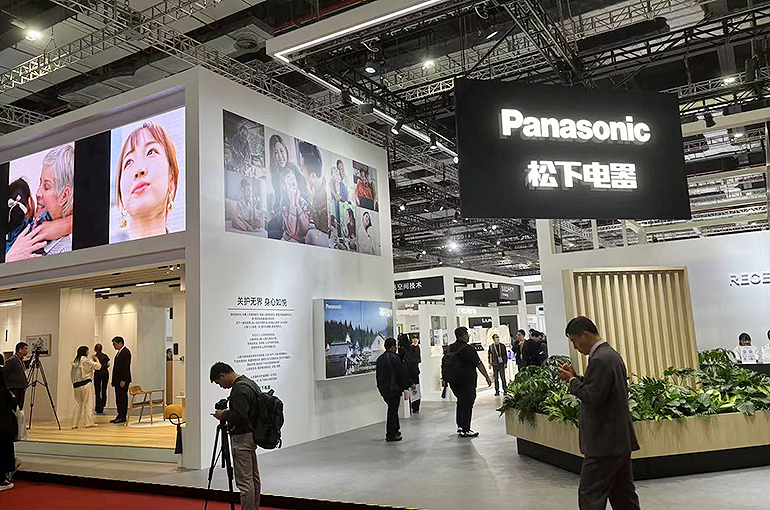 Japan's Panasonic to Lift China AI Investment, Start Building Electronic Materials Plant in Shanghai, Executive VP Says
Japan's Panasonic to Lift China AI Investment, Start Building Electronic Materials Plant in Shanghai, Executive VP Says(Yicai) Sept. 2 -- Panasonic Holdings will increase its investment in AI-related industries in China and start building a new electronic materials factory in Shanghai this month, according to the executive vice president of the Japanese electronics giant.
The global and Chinese investment boom in generative AI servers has boosted Panasonic's sales of related electronic materials, capacitors, and surface mounters, Tetsuro Homma, who is also chief executive for China & Northeast Asia at the Osaka-based firm, told Yicai recently.
In China, Panasonic provides conductive polymer capacitors, multilayer substrates, and surface mounter parts and equipment, while investing more to seize new AI market opportunities, Tetsuro pointed out.
Panasonic's China and Northeast Asia net profit surged 26 percent in the first quarter of the 2026 fiscal year from a year earlier, while its revenue rose 3 percent, Tetsuro noted. Profit jumped 10 percent on income climbing 3 percent in the 12 months ended March 31, he said.
The international AI server market has a projected compound annual growth rate of 24 percent from 2023 to 2028, according to data from TrendForce.
Panasonic Electronic Materials Shanghai will start building its new CNY120 million (USD16.8 million) factory, covering an area of 10,000 square meters in the city's Fengxian district, this month, Tetsuro said. It will mainly produce electronic materials for AI servers and likely achieve mass production in early 2027, he added.
In addition, Panasonic plans to increase its equipment investment in its electronic materials plant in Guangzhou, Tetsuro added. "The company has invested around CNY1.5 billion (USD210.4 million) in its Chinese factories producing electronic materials related to AI servers."
Panasonic's capacitors and electronic materials for AI servers are sold in the Chinese mainland and Western markets, with its relevant sales in the latter soaring 133 percent last year from the previous one.
Panasonic also recently inked a supply deal for coolant circulation pumps used to cool servers, hoping that its Hangzhou factory can produce such pumps in the future, Tetsuro pointed out.
Editor: Martin Kadiev